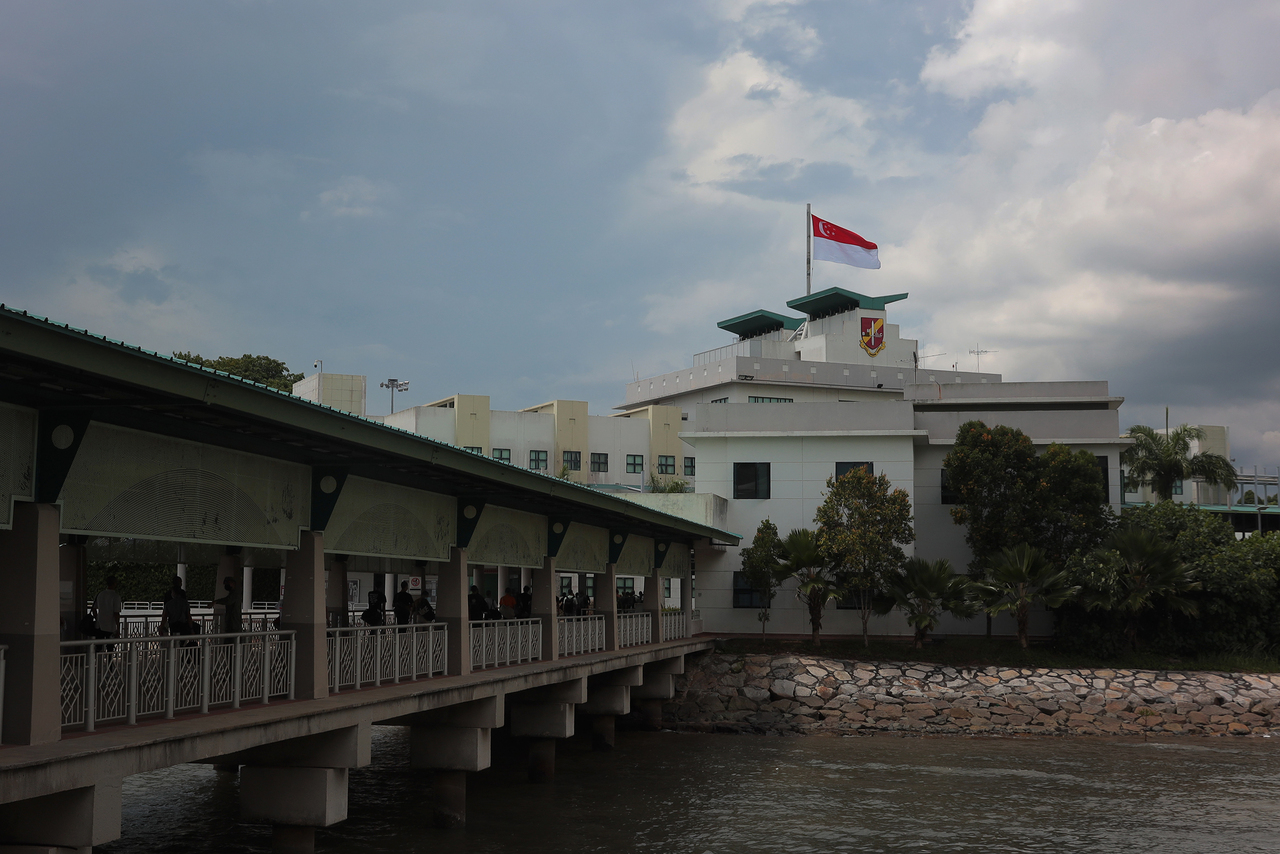Making military camps more ready for pandemics on the agenda: DSTA CEO
Sign up now: Get ST's newsletters delivered to your inbox

Buildings in military camps are being made safer to defend against future pandemics.
ST PHOTO: JASON QUAH
SINGAPORE - Buildings in military camps are being made safer to defend against future pandemics, including with better ventilation and making security measures touch-free, said Defence Science and Technology Agency (DSTA) chief executive Mervyn Tan.
Another area being studied is the greater use of simulators and augmented reality tools to support Singapore Armed Forces (SAF) training, which could potentially be scaled up to be used in large-scale exercises in land-scarce Singapore, he added.
These are among the key lessons that the agency is learning from the Covid-19 pandemic, he told reporters in an interview on Saturday (Oct 16), a day after the third Singapore Defence Technology Summit hosted by DSTA ended.
He was responding to a question on what challenges DSTA faced during the pandemic, and what is being done as Singapore moves towards treating the virus as endemic.
Mr Tan, a former air force chief and deputy secretary for technology at the Ministry of Defence, said DSTA does not just deliver weapon and combat systems. Part of its work is also focused on buildings and other infrastructure in SAF camps.
DSTA is getting architects to think about designing these buildings for better ventilation, and this includes toilets with natural ventilation.
"We're also thinking about designing things to be touch-free, so that you don't have to switch on the lights using your fingers... Today, we use fingerprint sensors for access (but) touching the surface is not very hygienic, so facial recognition is also the way to go for us," he said.
The SAF has already embarked on making its facilities more resilient to pandemics.
In November last year, a "pandemic-ready" medical centre was opened at Tengah Air Base, trialling technologies such as telemedicine and self-service lockers for dispensing medicine.
As for using more virtual tools for training, Mr Tan believes this is a worthwhile investment. Physical training could be potentially scaled up, he said.
One possibility is that some troops can train physically in the training area, while others log on through the simulators, to have "live-virtual interaction" during an exercise.
In terms of working norms, like all Singaporeans, DSTA employees also had to shift to working remotely during the pandemic.
But this development must be done in concert with increased security against cyber threats, he said.
An idea being looked at is working near home. Some classified information cannot be accessed from home but staff could go to their nearest camps to log on to the systems there.
Another learning point from Covid-19 is strengthening the resilience of supply chains, said Mr Tan.
"We're of course looking at diversifying sources. We're coming up with some kind of a dashboard, so that we have full awareness of the supply chain, not just the suppliers but also their sub-suppliers."
DSTA is also keen to grow the local presence of some of the original equipment manufacturers that the agency relies on.
"(This is) so that they are more responsive in addressing some of our needs here, especially in terms of the serviceability of our systems and equipment."


